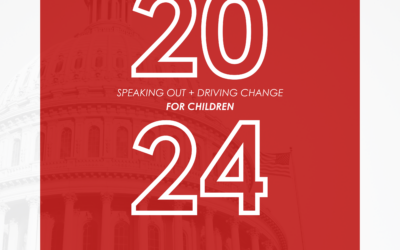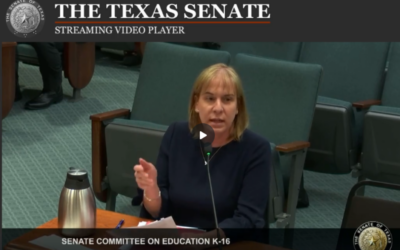
Health leaders, researchers, and advocates gathered to explore the basic needs children need to thrive and the best practices we can implement to better support them.
In today’s uncertain world, it’s more important than ever to make sure our children have everything they need to thrive. But what do kids really need? On March 24, CHILDREN AT RISK, Mattress Firm, and Texas Family Leadership Council presented “A Fighting Chance: Summit on Basic Needs and Child Success,” generously sponsored by Amerigroup and Amazon. This conversation explored the latest research from CHILDREN AT RISK’s data team and dove into the challenges today’s families face in meeting their child’s basic needs from access to food, shelter, and even a good night’s sleep.
To open the event, Kindel Nuño of Mattress Firm spoke to the importance of quality sleep as a mechanism to ensure the long-term health and development of children.
“At Mattress Firm, we believe all families deserve a safe and comfortable place to rest their head at night. Ultimately, we know the right mattress is the foundation for quality rest, but many other factors can affect how well we sleep,” said Kindel Nuño, Executive Vice President and General Counsel at Mattress Firm. “The data confirms much of what we already suspected – our children do not have equitable access to sleep. Socio-economic status, race, ethnicity, or even the street they live on continues to have undue influence over the quality and quantity of sleep children are getting.”

Melissa Atkins Wardy, Director of the Texas Family Leadership Council (TXFLC) with CHILDREN AT RISK serves as event emcee and panel moderator during this summit.
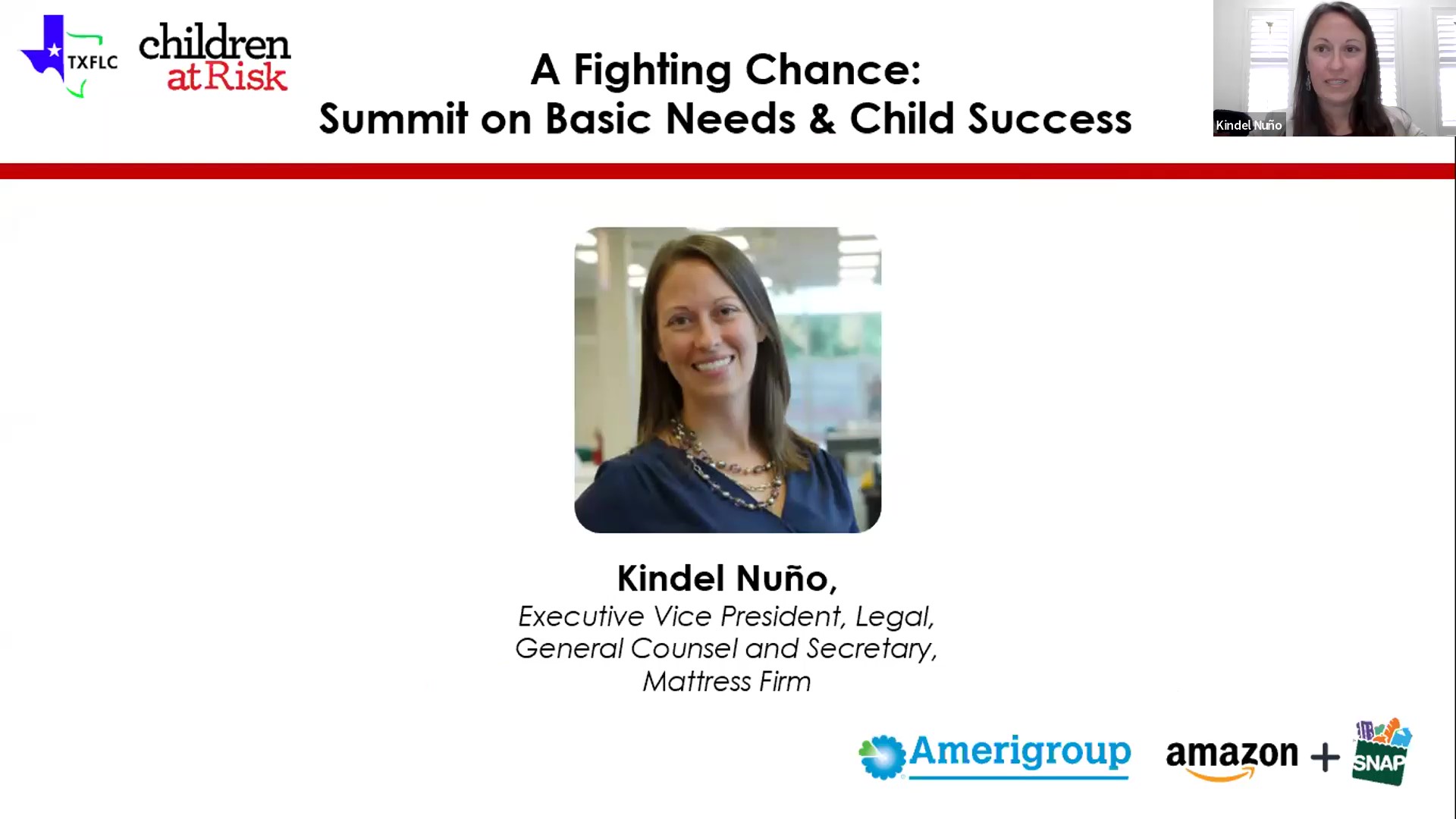
Kindel Nuño, Executive Vice President and Legal and General Counsel of Mattress Firm and CHILDREN AT RISK Board Member makes opening remarks.
..Next, CHILDREN AT RISK’s fearless leader Dr. Bob Sanborn facilitated a conversation about the Rest & Resilience: Securing Children’s Well-Being Through Sleep report with C@R Data team Sharmily Roy, Jessica Bundage, and Savine Villatoro (honorable mention to Sara Moran, Associate Director of the Center for Social Measurement & Evaluation, who was integral to the analysis for this project). Roy reflected on the impact of sleep on chronic diseases and the importance of this research to impact policy and practices, while Bundage connected the high-level sleep insecurity data with community factors such as poverty and noise or light pollution. For Roy, there were three takeaways from researching for this project: 1.) sleep is important throughout the lifecycle, 2) child friendly means to make our schools and social activities align with the required amount of sleep for developmental stage and 3) sleep can impact prevention of other more costly issues in mental health, obesity, and other conditions later in life.
Villatoro added that sleep insecurity manifests differently depending on the community and emphasized the importance of community-based research. “The conversations we had regionally helped us consider factors we wouldn’t have initially considered. For example, children who live in border regions may have to wake up even earlier to cross the border to make it to school on time, or students in a low-income household may not get enough sleep because they work after school…It made for a cohesive understanding,” said Savine Villatoro, Project Coordinator with CHILDREN AT RISK.

Dr. Bob Sanborn, President & CEO of CHILDREN AT RISK, facilitates a panel discussion diving into the latest data released byC@R’s data team.
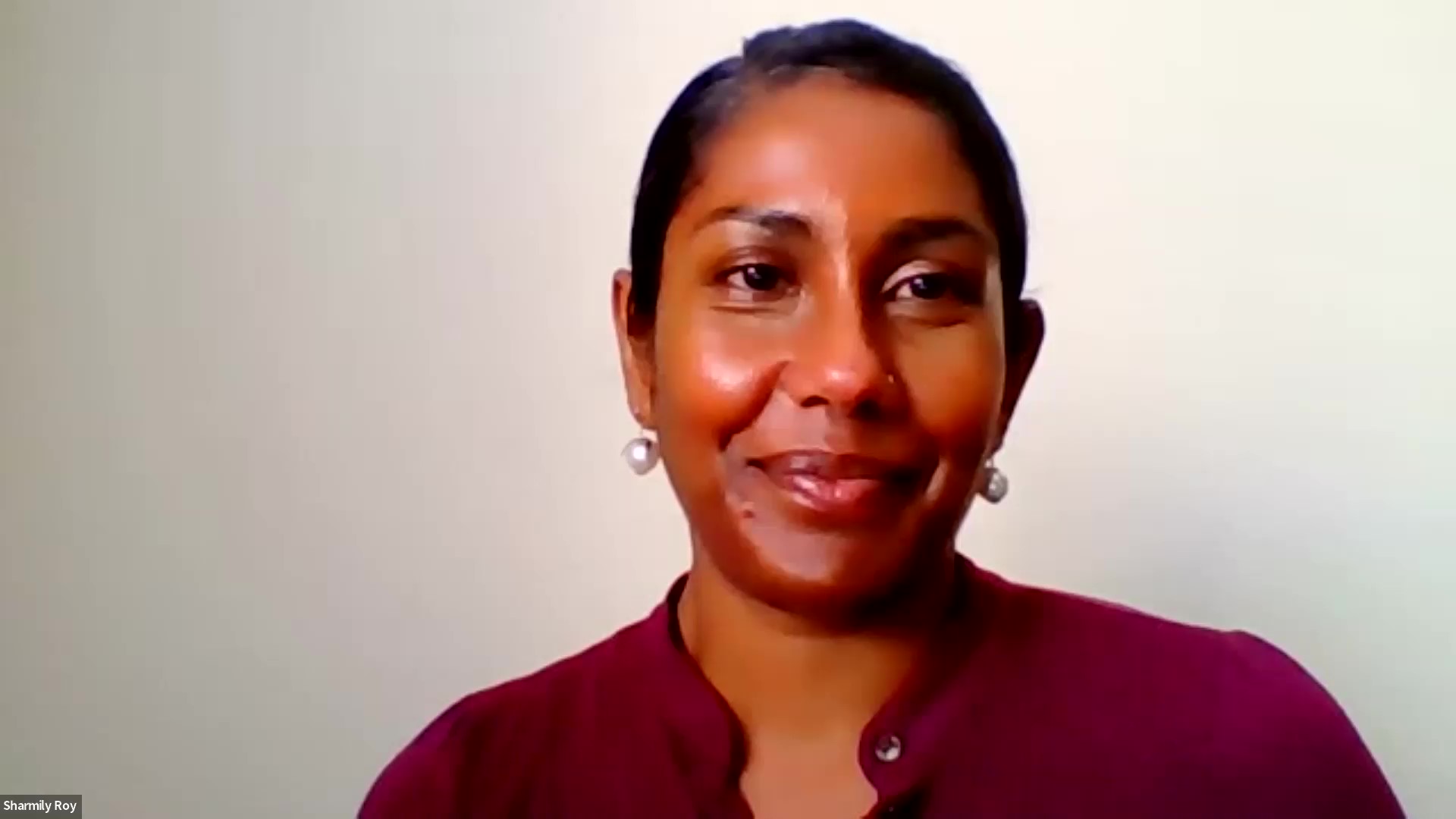
Sharmily Roy, Director of the Center for Social Measurement & Evaluation with CHILDREN AT RISK, discusses the methodology and key highlights uncovered throughout the research.

Jessica Bundage, Program Coordinator with CHILDREN AT RISK, connects the high-level data to community factors such as neighborhood poverty and access to services.

Savine Villatoro, Program Coordinator with CHILDREN AT RISK, reflects on the importance of community-based research and centering families in data conversations.
Dr. Binal Kancherla, Medical Director of the Children’s Sleep Center with Texas Children’s Hospital, dove deeper into the research on childhood sleep disorders and engaged in an interactive conversation on best practices to ensure quality sleep. To practice good sleep hygiene, she recommended a consistent schedule throughout the week, limiting the use of electronics one-hour before bedtime, using dim and bright light therapy at varying times in the day, doing relaxing activities before bedtime, and lowering your core body temperature by taking a bath at night. Recommendations aside, Dr. Kancherla also commented on the need for policy that better promotes healthy sleep cycles.
“…Until we change some of our policies, it’s going to be very difficult to get teenagers to fall asleep earlier,” said Dr. Kancherla. “It’s not that they don’t want to, and a lot of these teens are perceived as lazy, but really they have a lot of things they have to do and if you’re starting school that early, who could blame them?”
The conversation continued with a look to best practices in meeting basic needs such as housing stability, nutrition access, and wraparound services. “We know that any kind of housing instability has a ripple effect across these other health expressions… and community cohesion. You see the results of eviction in the classroom,” Zoe Middleton, Policy Advisory for Commissioner Rodney Ellis, said during the panel discussion moderated by emcee Melissa Atkins Wardy, Director of the Texas Family Leadership Council with CHILDREN AT RISK.
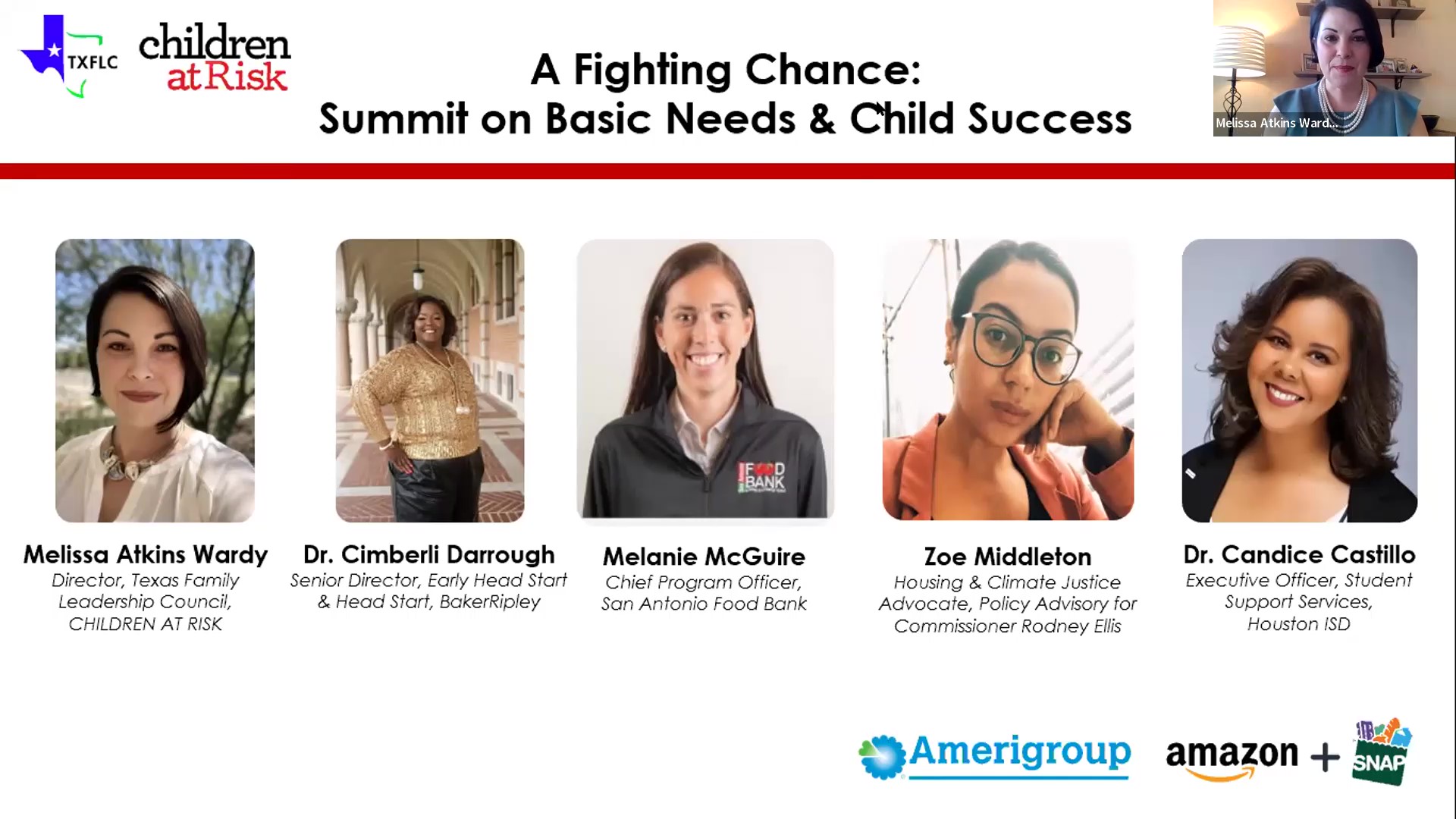
Event emcee Melissa Atkins Wardy introduces panelists Dr. Cimberli Darrough, Dr. Candice Castillo, Zoe Middleton, and Melanie McGuire to discuss best practices in meeting basic needs.
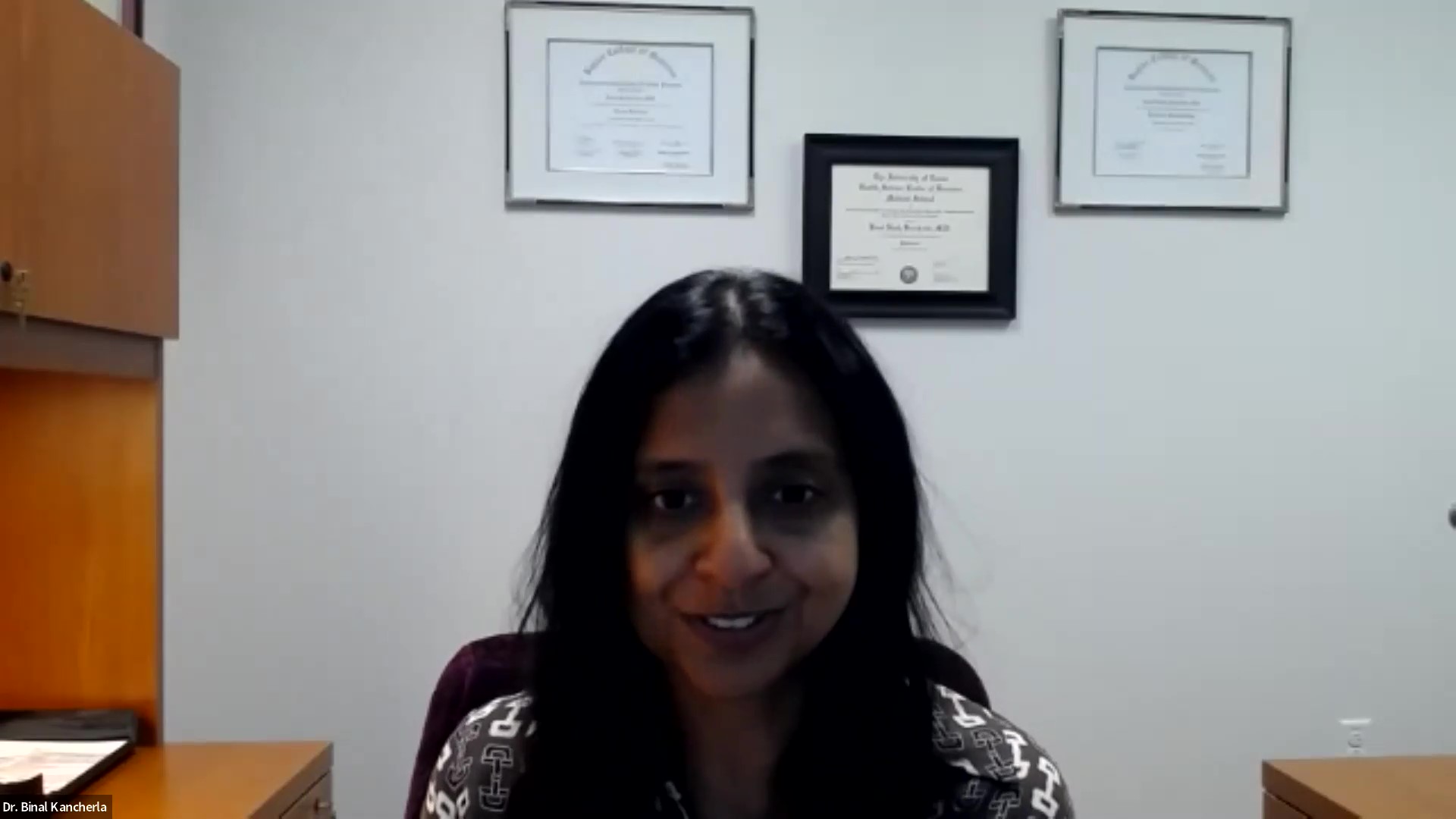
Dr. Binal Kancherla, Medical Director of the Children’s Sleep Center with Texas Children’s Hospital, presents data on common sleep disorders and engages in an interactive discussion with attendees.
Dr. Cimberli Darrough of BakerRipley shared about the integrated services they offer and reflected on how challenging it can be for families to be aware of the resources at their disposal. Dr. Candice Castillo later discussed the resources Houston ISD offers and their innovative approach to minimize the barriers students and families face in order to maximize students’ academic ability. Using data and community partnerships, her team has created a robust framework to support non-academic needs and address the challenges families are facing.
Taking an advocacy approach, Melanie McGuire, Chief Programs Officer with the San Antonio Food Bank, and Zoe Middleton, Policy Advisor for Commissioner Rodney Ellis, emphasized the importance of the integration of services to streamline processes and eliminate barriers to access at the local, state, and national levels.
“It can be as simple as asking families about SNAP and other federal benefit programs [during initial screenings].” McGuire said, encouraging community organizations to partner with their local food bank, if they don’t already.

Dan Longoria, Mattress Firm Franchisee and CHILDREN AT RISK Board Member makes closing remarks, reflecting on student testimonials and the importance of quality sleep for children’s health and development.

Guadalupe Fernández, CHILDREN AT RISK’s Director of the Children’s Immigration Network, calls for community members to advocate for policy that helps families meet their children’s basic needs.
CHILDREN AT RISK board member and Mattress Firm franchisee Dan Longoria reiterated the importance of equitable sleep as a global issue that must be addressed. He shared a heart-touching testimonial about a middle school student with five siblings raised in a low-income household. Their parents worked hard but could hardly afford food or beds. When a good Samaritan gave them a large monetary gift, they were able to fill their cupboards, pay rent, and purchase a bed for each child.
“I remember my first night in that bed feeling so overwhelmed with gratitude and peace. I slept better than I could ever remember before and I felt myself gaining more confidence and feeling more hopeful about life going forward” Longoria read from this testimonial.
Guadalupe Fernández, Director of the Children’s Immigration Network with CHILDREN AT RISK, joined the program to urge families and caregivers to advocate for better policies that connect families with resources and support local communities.
“Todos tenemos que exigir que todos nuestros pequeños, sin importar su estatus socioeconómico, su raza, o su estatus migratorio– tengan la oportunidad de acceder la buena salud, desarrollo, y el éxito para el bien de todo el estado de Tejas. [We all need to demand that all of our children– regardless of their socioeconomic status, race, or immigration status– have the opportunity to access good health, development, and success for the good of the entire state of Texas].
Your content goes here. Edit or remove this text inline or in the module Content settings. You can also style every aspect of this content in the module Design settings and even apply custom CSS to this text in the module Advanced settings.
To learn more about the Rest & Resilience report and CHILDREN AT RISK’s other findings through this research, visit childrenatrisk.org/sleep.

This post was written by Briauna Derry, Children at Risk’s Associate Director of Community Engagement. Briauna focuses on digital communications and public relations, but often supports team members in racial equity initiatives, statewide collaboratives, donor management, and all things social media.
MORE LIKE THIS
The Chutes & Ladders of Learning: C@R’s Annual Education Summit Recap
On Friday, June 6, CHILDREN AT RISK hosted the 2025 Education Summit: The Chutes and Ladders of Learning, bringing together educators, leaders, and advocates to examine the opportunities and challenges shaping Texas education. On Friday, June 6,...
Press Conference: Education, Legislation, and Workforce Alignment in Texas
Changes to school funding, teacher certification requirements, and public education policy poised to reshape academic recovery and career preparation for Texas students. Media Contacts:Morgan Gerri, 832.600.9354Rashena Franklin, 713.301.4577...
2024 Annual Report
Dear Friends and Advocates, At CHILDREN AT RISK, we believe that every child deserves a fair shot at success—and we know that it takes all of us to make that happen. Whether you’re a policymaker, educator, donor, volunteer, or advocate, your...
Standing Up for Children in 2025
On March 28, CHILDREN AT RISK hosted the 2025 Stand Up for Children Signature Event featuring Fred Armisen of Saturday Night Live. Over 430 guests joined to support CHILDREN AT RISK’s Stand Up for Children at The Post Oak Hotel on Friday, March...
Press Conference: Changes at U.S. Department of Education Impact Support for Emergent Bilingual Students
Massive layoffs at the U.S. Department of Education are predicted to impact 1.27 million Texas children Media Contacts:Morgan Gerri, 832.600.9354Rashena Franklin, 713.301.4577 TEXAS (March 19, 2025) – In an unprecedented move, the U.S....
Recap: The State of Black Children in Texas 2025
On February 13, 2025, CHILDREN AT RISK presented the virtual learning summit The State of Black Children in Texas. Each year, the State of Black Children in Texas Summit serves as a call to action—a gathering place for experts, advocates, and...
Advocating in Support of SB 570 & SB 991
Mandi Kimball, Chief Government Affairs Officer with CHILDREN AT RISK, testifies in support of SB 570 & SB 991 during the March 25, 2025 hearing of the Texas Senate Committee on Education K-16. My name is Mandi Kimball, Vice President of...


